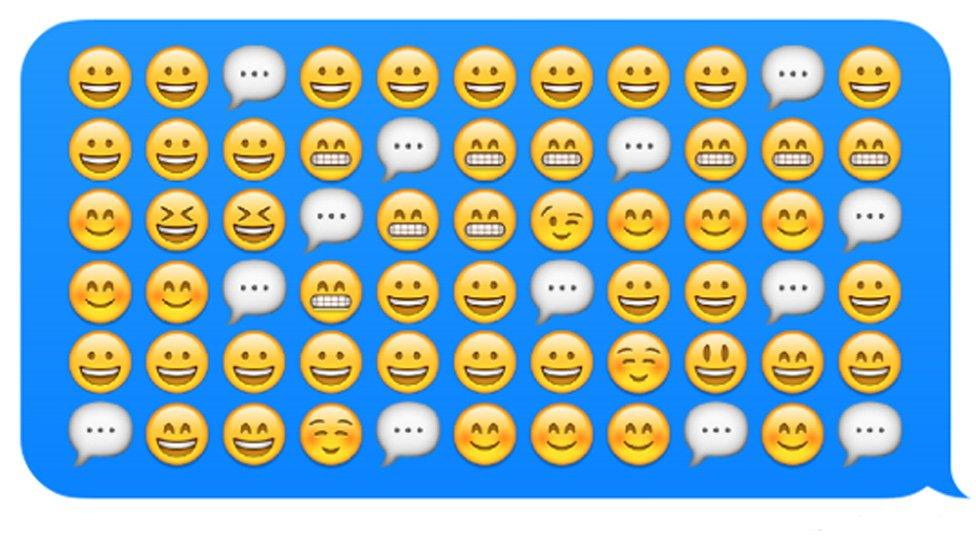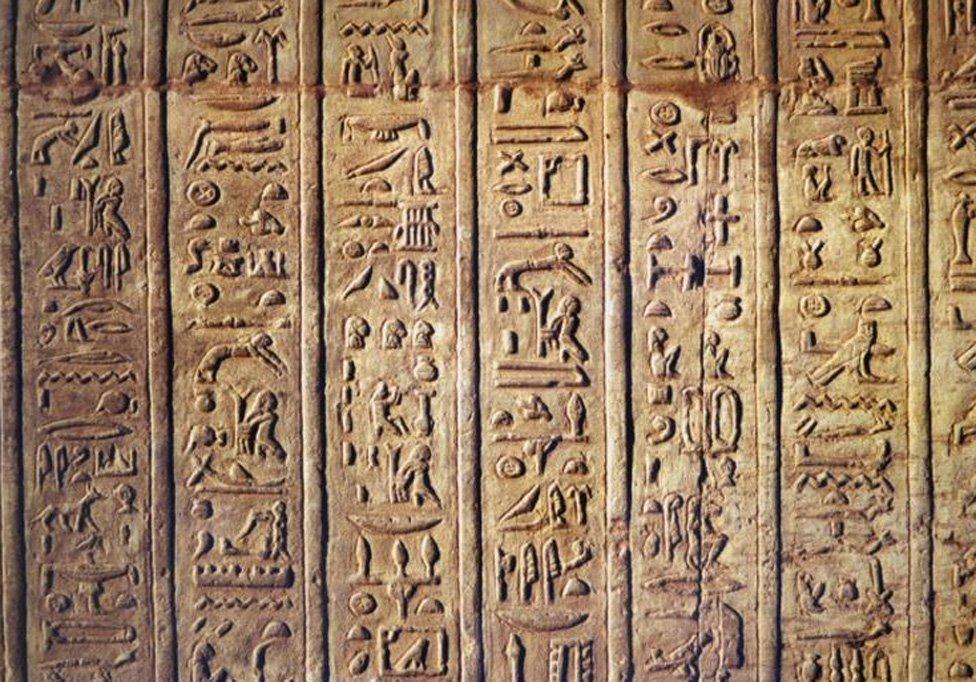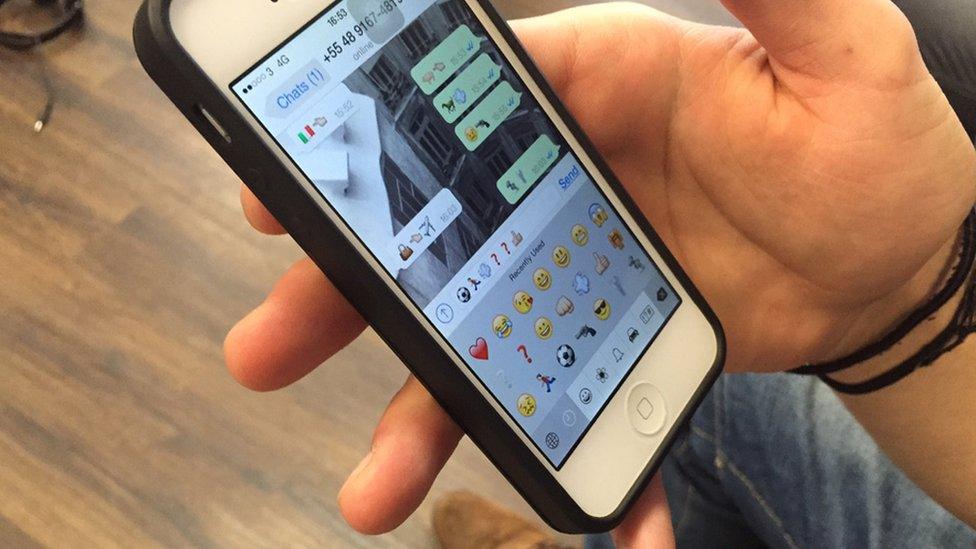UK's fastest growing language is... emoji
- Published

Emoji is now the fastest growing language in the UK and evolving faster than ancient forms of communication, such as hieroglyphics.
That claim comes from Professor Vyv Evans of Bangor University who is studying the "speed of evolution" in the use of the little icons instead of words.
"As a visual language emoji has already far eclipsed hieroglyphics, its ancient Egyptian precursor which took centuries to develop," he said.
In a survey by TalkTalk Mobile, 72% of 18 to 25-year-olds said they found it easier to put their feelings across in emoji icons than in text.

The first emoji icons? Hieroglyphics in a temple in Luxor, Egypt, first used more than 5,000 years ago
Professor Evans said: "Emoji is the fastest growing form of language in history based on its incredible adoption rate and speed of evolution."
Newsbeat challenged six language students, aged 18 to 29, to use emoji symbols to express a range of phrases, from simple stuff like "my new car is red" to complex scenarios like "I've lost my passport and my flight's in three hours".
Jason, Davi, Verena, Santiago, Kubra and Alejandro did pretty well - bypassing German, Italian, Portuguese, Spanish, Turkish and English in the process.
See how they got on in this video.
Can these students work out the phrases from the emojis?
The word emoji literally means "picture" (e) + "character" (moji) in Japanese. It was added to the Oxford English Dictionary in 2013.
Tennis star Andy Murray marked his wedding day last month by tweeting the story of the day entirely in emoji.
And tech giant Apple recently launched "diverse" emoji by adding the option of different skin tones to its happy faces.

Every Friday Newsbeat brings you the news... in emojis. See if you can work out which stories we've told here.
Follow @BBCNewsbeat, external on Twitter, BBCNewsbeat, external on Instagram, Radio1Newsbeat, external on YouTube and you can now follow BBC_Newsbeat on Snapchat